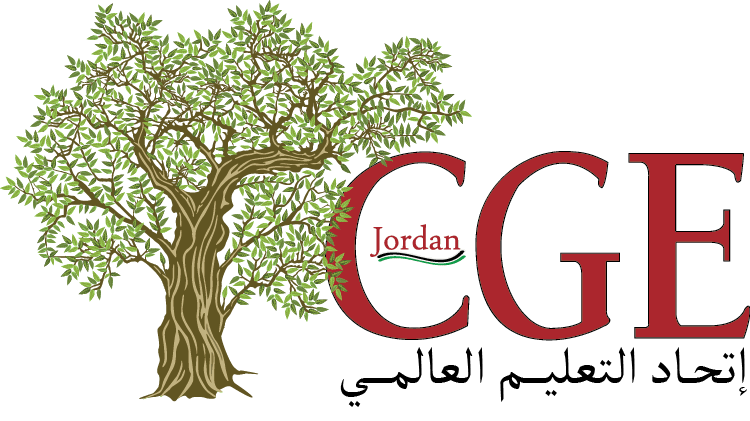The Diversity of Arabic Dialects
Learning Arabic boasts a rich array of dialects, each reflecting regional nuances and historical influences. Among these, the Levantine dialect shines as a famous and widely understood variant. Originating from countries like Jordan, Lebanon, Palestine, and Syria, Levantine Arabic serves as a bridge for effective cross-border communication.
Learning a foreign language opens doors to cross-cultural communication. Arabic, spoken across the Middle East and North Africa, has garnered the attention of language learners globally. As a leading institution in Arabic studies, we offer comprehensive language programs tailored to learners worldwide. In this article, we explore the significance of learning Arabic, specifically the Levantine dialect, and why it’s a valuable choice for language enthusiasts.
The Power of learning Arabic dialect, Levantine Arabic for example:
Levantine Arabic stands out for its widespread usage and ease of comprehension, making it a powerful tool for cross-cultural interactions. One notable member of the Levantine family is Jordanian Arabic, which possesses distinct characteristics, including soft pronunciation, clear vowel sounds, and simplified grammar. This makes it accessible for learners at various proficiency levels, turning it into a welcoming gateway to the Arabic-speaking world.
Navigating Egyptian Arabic:
Heading southward, Egyptian Arabic emerges as another captivating dialect. Shaped by Egypt’s rich history and cultural influence, this dialect resonates throughout the Arab world. The popularity of Egyptian media, including movies and television shows, has catapulted Egyptian Arabic onto the global stage. Its unique pronunciation and vocabulary offer learners a glimpse into the vibrant Egyptian culture and a solid foundation for understanding other regional dialects.
Why Learning Arabic dialects Over MSA?
Benefits of Learning Levantine Arabic:
While Modern Standard Arabic (MSA) serves as the formal language for written communication, it can be a challenging starting point for learners due to its grammatical intricacies and divergence from spoken Arabic. Learning Arabic dialects, such as Levantine and Egyptian, presents several compelling advantages:
- Real-world Communication: Dialect learners gain the ability to engage in everyday conversations, connect with locals, and navigate practical situations with ease. This hands-on approach to language learning fosters genuine communication skills.
- Cultural Immersion: Embracing a dialect immerses learners in the rich cultural tapestry, customs, and traditions of the regions they wish to communicate with, providing a profound understanding of local culture that goes beyond mere language.
- Accelerated Learning: The familiarity of dialects, especially for native English speakers, expedites the learning process, encouraging active and confident engagement. This approach facilitates quicker language acquisition and fluency.
- Enhanced Employability: Proficiency in spoken Arabic dialects, particularly Levantine Arabic, enhances career opportunities and employability, as it caters to the language requirements of a broad range of industries in the Middle East.
- Cultural Integration: Learning Levantine Arabic opens doors to integrating into local communities, fostering deeper connections and understanding. It allows learners to seamlessly adapt to various social settings.
- Travel with Confidence: Knowing Levantine Arabic ensures that travelers in the region can navigate unfamiliar territories with ease, making their journeys more enjoyable and enriching.
- Interpersonal Relationships: Proficiency in Levantine Arabic is a powerful tool for building relationships with native Arabic speakers, both personally and professionally.
- Diverse Arabic Literature: Access and appreciate a wide array of Arabic literature, poetry, and media produced in regional dialects, enhancing cultural enrichment.
- Community Engagement: Engage with local Arabic-speaking communities more effectively, contributing to social integration and community involvement.
- Tapping into Global Markets: With Levantine Arabic, you can access and understand news, trends, and market insights across the Levant region, facilitating international business and trade opportunities.
- Gateway to the Arab World: Levantine Arabic serves as a welcoming gateway to the broader Arabic-speaking world. Once you grasp this dialect, you’ll find it easier to understand and communicate with speakers of other regional Arabic dialects, allowing for more extensive cross-cultural interactions.
- Accessibility for All Levels: Jordanian Arabic, a prominent member of the Levantine family, offers unique characteristics that make it accessible to learners at various proficiency levels. Its soft pronunciation, clear vowel sounds, and simplified grammar provide an excellent entry point for beginners while offering opportunities for mastery to advanced learners.
- Soft Pronunciation and Clarity: The soft and melodious pronunciation of Jordanian Arabic, a key component of Levantine Arabic, makes it an inviting and pleasant language to learn and speak. Clear vowel sounds and simplified grammar further contribute to its accessibility and appeal to learners.
- Practical Application: The practicality of Levantine Arabic is one of its most compelling features. It is a language that can be used immediately in real-world settings, such as markets, cafes, and everyday conversations, providing an immersive experience that accelerates your language skills.
At CGE Jordan, we understand the importance of learning Arabic dialects for effective communication. We offer a variety of language programs to suit learners worldwide. Whether you choose to study abroad, take online classes, opt for personalized one-on-one sessions, or to join group track study, our approach equips you with the essential linguistic tools and cultural insights. This enables you to not only communicate effectively but also to thrive in the diverse Arabic-speaking environments across the Middle East and North Africa.

Conclusion:
Learning Arabic dialects is the key to unlocking meaningful connections, deep cultural understanding, and successful communication across the Middle East and beyond. Learning spoken Arabic, such as Levantine Arabic and Egyptian Arabic, empowers learners to confidently navigate the Arabic-speaking world. At CGE Jordan, we stand ready to guide language enthusiasts on their journey to learning the Arabic dialects, ensuring their global reach and impactful interactions. Embark on your Arabic language learning adventure with CGE Jordan in Amman, Jordan, today, and let the allure of Levantine Arabic captivate your linguistic journey.

